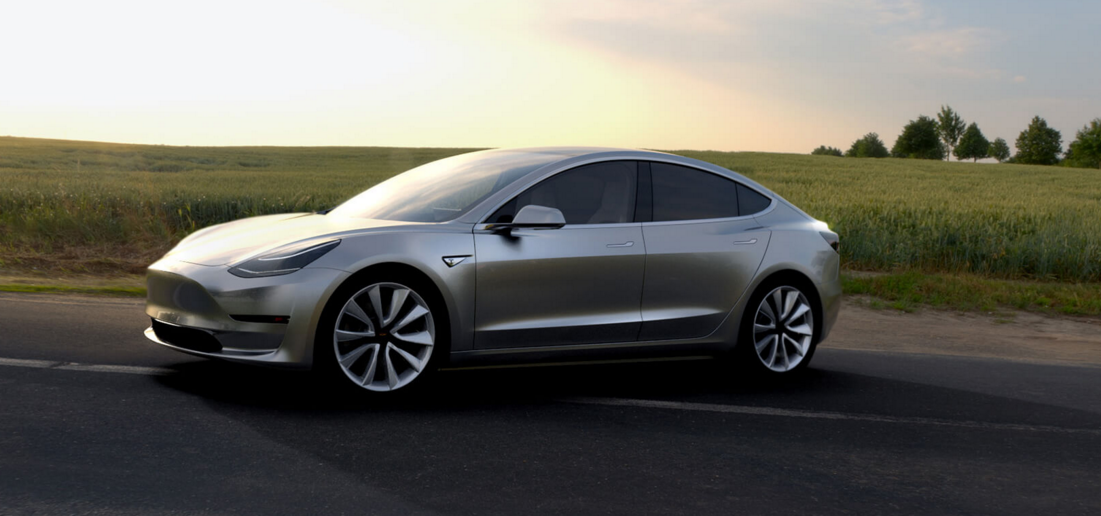
It’s no secret that electric vehicles (EVs) are changing the transportation industry. Although they make up a small share of the total vehicles on the market, EVs are pushing innovation, technology, and sales. Last week, EVs got a huge boost from Tesla’s announcement of the Model 3, the affordable EV with a 215-mile range. Tesla’s taking on the world, but is the world prepared for a future driven by EVs?
Elon Musk sure knows how to make a splash. Amid pomp, circumstance, and cheers from a fawning crowd, the Model 3 made its debut. With the base model price of $35,000, the Model 3 brings Tesla from a luxury vehicle affordable only to the affluent into a more mainstream price range, thanks in large part to more affordable batteries.
Customers certainly thought so. Around the world, people lined up outside of Tesla showrooms to place a $1,000 deposit on a car that was not yet in production. Within the first 24 hours, Tesla had taken 115,000 orders, growing to 325,000 in the first week. “Model 3 orders at 180,000 in 24 hours,” Musk wrote in a tweet last Friday. “Selling price with avg option mix prob $42K, so ~7.5B in a day. Future of electric cars looking bright!”
Bright for Musk, bright for EV enthusiasts, not so bright for the oil industry, at least according to Bloomberg New Energy Finance. Written up by Tom Randall in Bloomberg news as “Here’s How Electric Cars Will Cause the Next Oil Crisis,” the BNEF analysis predicts rapid and drastic changes for the oil industry as a result of greater EV adoption. “With all good technologies,” Randall writes, “there comes a time when buying the alternative no longer makes sense.”
This is known as an S-curve, which is how economists describe the adoption of new technologies: slow at first, and eventually taking off until they dominate the market. Think cell phones. BNEF predicts that the 2020s will be the decade of the electric car: By 2022 EVs will cost the same as an internal combustion car, which they predict will be the point of “liftoff” for EVs. Losing a big chunk of transportation fuel demand could cause some real turmoil in the oil market.
Would it be enough to cause an oil crisis? Vox’s David Roberts is not so sure, given the volatility of oil prices, and their ultimate unpredictability. Still, he writes, “EV costs are declining rapidly. In the reasonably near future — maybe within a decade, maybe two — EVs are going to become cheaper and better than comparable ICE vehicles. When that happens, adoption is likely to accelerate, driving economies of scale that accelerate it even further.” Thus, Roberts concludes, “The exact timing can't be predicted, but the transition of EVs from curiosity to destabilizing force is coming. The oil industry would do well to wake up to it.”
There is one number in the BNEF analysis that sticks out, and is consistent with data from our own Advanced Energy Now Market Report: growth in the plug-in EV market is about 60% annually. That’s the same rate of growth experienced by a different vehicle about a hundred years ago: Henry Ford’s Model T.
To listen to the news this week and last, you might be excused for thinking that the story of electric vehicles begins with Elon Musk inventing the Tesla Roadster in 2008. In truth, EVs are older than the Model T and, in the early days of the automobile, had a large share of the market. In 1900, 28% of the 4,192 vehicles produced in the United States were EVs. BNEF predicts we’ll reach that again by 2040. Elon Musk didn’t invent the electric car. Actually, he’s bringing it back.
AEE put out our Advanced Energy Now 2016 Market Report last month. Check out how EVs and other advanced vehicles are changing the industry, along with all other advanced energy technologies.
